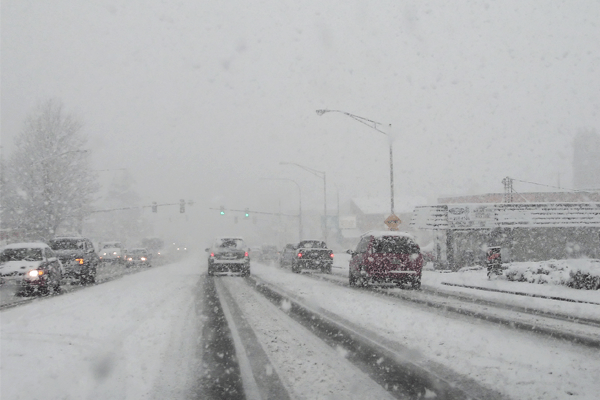Winter Driving Tips To Keep You Safe
Stay Safe With Winter Driving Tips
The winter months can prove challenging for drivers. This is because the weather is often unpredictable which places additional demands on your driving skills and vehicle. Safety needs to be a top priority for motorists. You need to make sure you are prepared for the roads this winter by following these winter driving tips. Depending on the weather and road conditions, you need to be ready to adjust your speed accordingly.
Make Sure Your Vehicle Is Ready For Winter
Before winter, take your vehicle in for a maintenance check-up. Do not wait until winter-time to check your battery, tires, belts, radiator, hoses, lights, oil, brakes, heater/defroster, exhaust system, ignition system and wipers.
In addition to having your tires checked before winter, make sure to check the pressure of the tires frequently. The pressure naturally decreases when the weather gets colder. If you live in heavy snow areas that are prone to frosty, slushy and icy conditions, you should consider using winter tires.
Also, it is important that you keep your tank at least half full at all times during the winter. You should also have a sufficient amount of windshield washer fluid in your vehicle’s reservoir.
Keep A Winter Survival Driving Kit
Having essential winter supplies in your vehicle can provide safety and comfort if you and your passengers get stranded. This is one of the easiest winter driving tips; however, it is often overlooked.
Essential supplies include:
- Shovel
- Ice snowbrush/scraper
- Sand (or another type of traction aid)
- Tow chain or rope
- Booster cables
- Warning lights or road flares
- Fuel line antifreeze
- Batteries
- Flashlight
- Fire extinguisher
- First aid kit
- Small tool kit
- Blanket
- Extra footwear and clothing
- Candle
- Lighter or matches
- Non-perishable foods such as soup, juice, bottled water, granola and/or chocolate
Be Prepared
Before you start driving, check the road and weather conditions and plan your route. You may need to give yourself extra travel time or wait until the conditions improve. If you are going to be traveling a longer distance, it is a good idea to let someone know where you are going and when you expect to arrive.
How To Handle Your Vehicle
Skidding
A skid is when the wheels on your vehicle lose traction when driving on a slippery road. When your vehicle is skidding, you can regain control of your vehicle by steering in the direction you are skidding. Steer in the direction you want the vehicle to go. Be cautious not to oversteer. When you are skidding on ice or in a straight line, you must step on the clutch or shift the vehicle into neutral.
Cruise Control
When people think of common winter driving tips, they don’t usually think about the danger of using their cruise control. When you are driving on wet, icy or snowy roads, you must avoid using your cruise control; these weather conditions can cause the vehicle to accelerate unpredictably. It can reduce your reaction time and your ability to control the vehicle.
Distance Between Vehicles
Remember it takes longer to stop on a wet, snowy, icy or slippery road. Make sure to leave plenty of space between your vehicle and the vehicle ahead of you. Under normal weather conditions, a good rule for stopping is the two-second rule. When weather conditions are poor, drivers should double the distance between vehicles.
What Is The Two-Second Rule?
Use a marker on the road such as a road sign. Start counting when the rear of the vehicle in front of you passes the marker. Count “one-thousand and one, one-thousand and two”. Stop counting when the front of your vehicle reaches the same marker. You are too close if your vehicle reaches the marker before you count “one-thousand and two”.
In the winter, remember to double the two-second rule. You are too close if your vehicle reaches the marker before you say “one-thousand and four”.
Follow these simple winter driving tips to not only help keep yourself safe, but those you share the road with. Always remember the most important rule: take your time. It is better to arrive alive, safely and late than to not arrive at all or arrive late because there has been damage to you or your vehicle. Stay safe and take your time on the roads.
Sources:
For more information about winter driving tips, check out the websites below:
Winter Safe Driving
CAA Winter Driving
Winter Driving Tips & Safety Features
